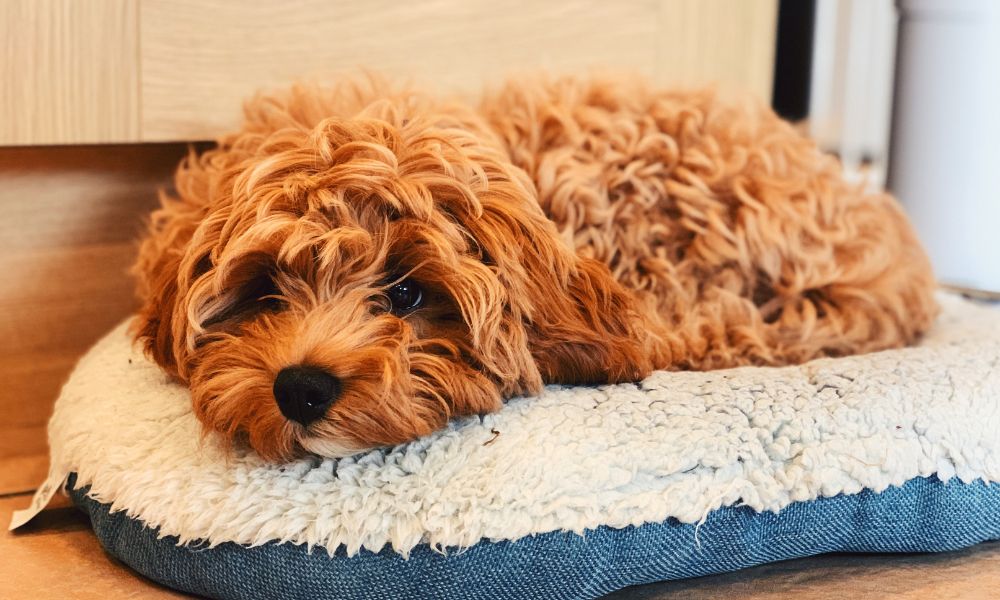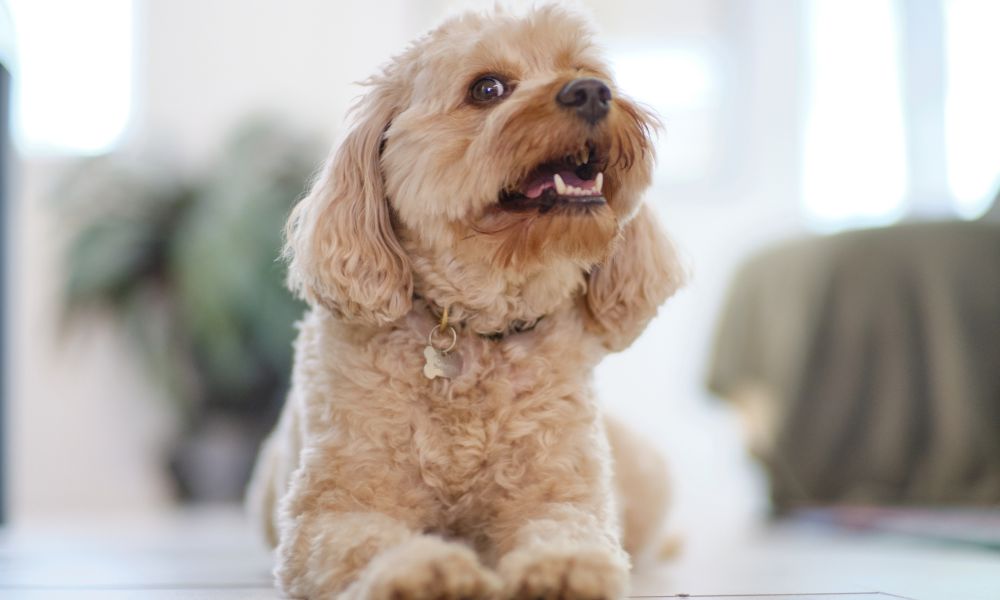 2 Nov
2 NovDoes Cavapoo Bark A Lot? (Explained)
As an avid dog parent with a soft spot for these adorable crossbreeds, I often write about the quirks and qualities that make each breed special. Today, we’re focusing on a question I’ve repeatedly heard: “Does Cavapoo bark a lot?”
Quick Answer: Yes, Cavapoos are known for their tendency to bark, but the frequency and intensity can vary depending on individual temperament, training, and environmental factors. Understanding these elements can help manage and address barking behavior effectively.
If you’re considering adopting a Cavapoo or already have one as a furry family member. It’s essential to know what to expect, right? Well, you’re in for an informative treat.
Together, we’ll explore the factors influencing Cavapoos’ barking habits while keeping things simple, professional, and engaging. By the end, you’ll understand what makes a Cavapoo vocal and how to navigate those occasional (or frequent) barks.

Understanding the Cavapoo Breed
The Cavapoo is an endearing blend of two beloved breeds: the Cavalier King Charles Spaniel and the Poodle. This unique combination results in a companion that’s not only affectionate but also highly intelligent.
Brief History and Characteristics of Both Parent Breeds
The Cavalier King Charles Spaniel, with its aristocratic roots, brings a rich history of being a loyal companion. Known for its gentle nature and expressive eyes, this breed has charmed its way into the hearts of many.
On the other hand, the Poodle is a breed celebrated for its remarkable intelligence and hypoallergenic coat. Often recognized for its elegance and versatility, the Poodle comes in various sizes, from standard to miniature.
How Genetics Can Influence Barking Tendencies
When these two distinctive breeds are combined to create a Cavapoo, their genetic traits intertwine, shaping the temperament of the resulting crossbreed. It’s important to note that both the Cavalier King Charles Spaniel and the Poodle can have varying degrees of vocal tendencies.
This means that a Cavapoo may inherit a proclivity for barking, and the degree to which this behavior is expressed can be influenced by the specific genetic traits passed down by its parents.
Understanding this genetic influence is a crucial first step in comprehending why Cavapoos exhibit certain behaviors, including their barking habits. It also underscores the importance of early training and socialization to help mold their behavior in a positive and manageable way.
Factors Influencing Barking Behavior in Cavapoos
The barking behavior of Cavapoos isn’t just a matter of breed characteristics; it’s a complex interplay of various factors. To start with, genetics and inherited traits play a significant role. Just as humans inherit characteristics from their parents, so do Cavapoos. These genetic factors can influence not only their tendency to bark but also other behaviors that might be related to their vocal habits.
However, nature is just one part of the equation. Socialization and training are equally vital. Early socialization can help control excessive barking by exposing the Cavapoo to various stimuli in a controlled manner. This ensures they become well-adjusted and less reactive to unfamiliar sights and sounds. The training methods used can further impact how frequently a Cavapoo barks and how they respond to commands aimed at curbing unnecessary vocalizations.
Lastly, the environment and living situation can’t be overlooked. Dogs are highly adaptable, but they react to their surroundings. For instance, a Cavapoo living in a noisy urban environment might bark more frequently than one in a quiet countryside setting. Therefore, creating a suitable living environment that meets their needs, offers comfort, and provides a sense of security can significantly influence their barking tendencies.

Typical Barking Patterns in Cavapoos
Cavapoos, like many dogs, have distinct barking patterns that convey different messages:
1. Alert Barking
Cavapoos are naturally vigilant, and they may bark to alert their owners of potential intruders, noises, or unfamiliar situations. This instinctive behavior stems from their Cavalier King Charles Spaniel heritage, which historically served as alert dogs.
2. Separation Anxiety and Loneliness
When left alone, Cavapoos may experience separation anxiety, a common trigger for barking. This behavior is their way of expressing distress and seeking comfort. Loneliness can also prompt barking as they crave social interaction and companionship.
3. Playfulness and Excitement
During playtime, Cavapoos often use barking as a form of communication. It’s their way of expressing enthusiasm and excitement. This behavior is a testament to their joyful and sociable nature, inherited from both parent breeds.
How to Manage and Minimize Barking in Cavapoos
Managing and minimizing barking in Cavapoos requires a blend of understanding, patience, and consistency. Here’s how you can effectively approach this:
1. Training Techniques
Using positive reinforcement methods can be extremely effective for controlling barking. Whenever your Cavapoo remains quiet in a situation where they might typically bark, reward them with treats or praise. This helps them associate being quiet with positive outcomes.
If you’re unsure about the best techniques, consider enrolling your Cavapoo in professional training classes. These classes not only address barking but also other behavioral aspects, ensuring a well-rounded and well-behaved pet.
2. Exercise and Mental Stimulation
Regular exercise is pivotal for a Cavapoo’s mental and physical well-being. A tired dog is generally a quiet dog. Incorporating daily walks, play sessions, and even agility courses can help burn off excess energy.
Additionally, mental stimulation is equally essential. Toys like puzzle feeders, interactive games, and even simple tricks can keep your Cavapoo engaged and prevent boredom, which is often a precursor to unnecessary barking.
3. Addressing Anxiety and Stress
If your Cavapoo’s barking stems from separation anxiety or other stressors, it’s crucial to address the root of the problem. Create a safe space for them, perhaps a designated room or a crate with their favorite toys. Familiar scents and calming music can also help soothe anxiety.
If barking due to stress persists, it might be time to consult with a professional, such as a veterinarian or a pet behaviorist. They can offer expert guidance and even recommend treatments or interventions specific to your Cavapoo’s needs.




